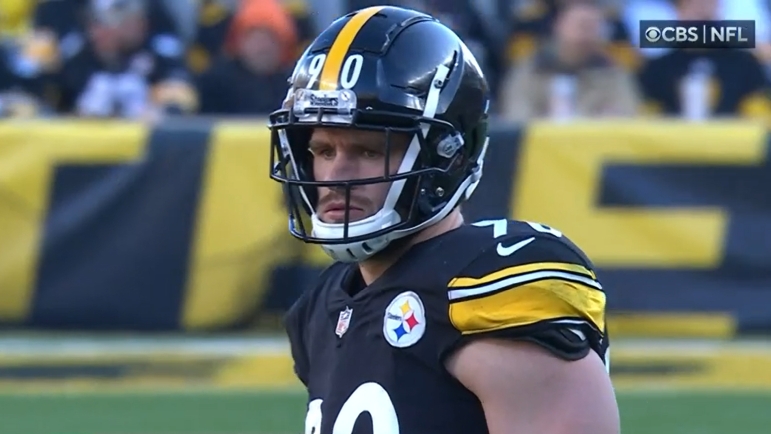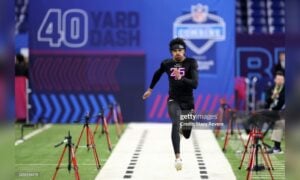The Pittsburgh Steelers played seven games without T.J. Watt last season. They won exactly one of those games, losing the other six, yet posted an 8-2 record when he did play. The quality of opponent on the schedule was a factor, as well as the timing as they transitioned to a new offense and new, rookie quarterback, but how do you explain the stark contrast in the team’s results?
“I don’t know. I don’t have to explain it, either”, the star pass rusher recently said when posed that question during an interview on CBS Sports Radio on the Maggie and Perloff program. “I know that’s just one of those things that I just go to work and try to do the best that I can to be the best player I can be and teammate”.
The thing is, while the team was tremendously more successful when he was on the field, it’s not as though he put up Defensive Player of the Year statistics. He still managed to play 502 defensive snaps on the season, but only had 5.5 sacks across 10 games, with 12 hits, eight tackles for loss, and one forced fumble. He did have two interceptions.
“It’s not always what you can do on the field, it’s about how you can try to get men to rally around you and try to spark as much as we possibly can for the defense, and hopefully that gets contagious throughout the team”, Watt said.
“If you can’t, if you’re not always playing the best that you want to, which was the case for me this season, it was all about bringing energy and trying to bring as much juice and spark to the team as possible”.
I don’t think anybody who has watched all of his snaps over the past two seasons can even begin to attempt the argument that he played anywhere near to his capabilities after returning from injury last season.
Not only did he suffer a pectoral injury in the season opener, he also suffered a knee injury. The former mercifully did not require surgery (if it did, he would not have played again in 2022), but the latter eventually did need some attending to, which possibly delayed his return a week or two.
He returned after the bye week and played the final nine games, registering 33 tackles with five for loss, 4.5 sacks, 11 hits, one interception, a forced fumble, and three passes defensed. That over nearly 450 defensive snaps played.
Over the previous four seasons, he averaged 60 tackles a year with 17.5 for loss, 16.3 sacks, 34 hits, over five sacks, and an interception. Granted, his own impossible standard of play works against him in his own evaluation, but he knows as well as anybody that he didn’t, and couldn’t, play as best as he wanted to.








